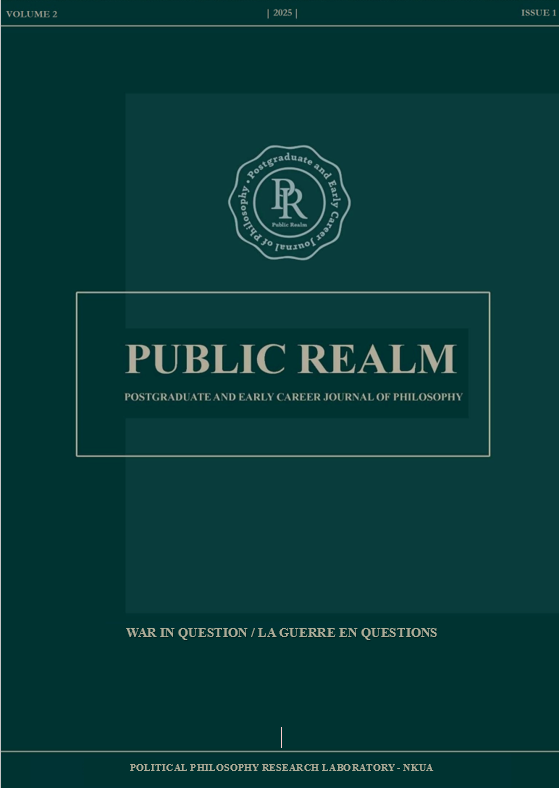Does the Melian Dialogue serve as an emphatic continuation of Pericles’ imperialist policy?
Résumé
This article is divided into two parts: in the first part I undertake the weighty task of interpreting the Melian Dialogue – the widely known conversation between the Athenians and the Melians, which took place in 416 B.C. – and then I shed light on the immorality that characterizes the views expressed by the Athenians. Athens seeks to conquer Melos by force, basing its decision on the necessity of Athenian hegemony to constantly expand its territorial borders. The second part of this paper examines the three speeches of Pericles – propounded by Thucydides – and attempts to prove that the Melian Dialogue acts as a faithful continuation of Pericles’ imperialistic orations. In this way, it becomes evident that the Melian Dialogue is not just a circumstantial event, caused by the pain and suffering of the Peloponnesian War, but represents as well a carefully considered expansionist policy put into practice by the Athenians throughout the years.
Article Details
- Comment citer
-
Anastasopoulos, S. (2025). Does the Melian Dialogue serve as an emphatic continuation of Pericles’ imperialist policy? . Public Realm. Postgraduate and Early Career Journal of Political Philosophy, 2, 67–85. https://doi.org/10.12681/pr.v2.35535
- Numéro
- Vol. 2 (2025): Public Realm
- Rubrique
- Articles
Les auteurs dont les articles sont publiés par la revue acceptent les conditions suivantes:
Les auteurs conservent tout droit d’auteur selon la Licence publique Creative Commons Attribution - Utilisation non commerciale - Partage dans les mêmes conditions 4.0 International (CC BY-NC 4.0) permettant le partage du travail à condition que le nom d’auteur et la revue PUBLIC REALM soient référés.
Les auteurs peuvent convenir avec la revue de la distribution non-exclusive du travail publié dans la revue (par exemple, mise dans une base de données institutionnelle ou publication dans un livre), à condition que la première parution soit référée.
Les auteurs sont invités à diffuser leurs travaux (de préférence dans des bases de données institutionnelles ou sur leurs sites personnels) avant et pendant la procédure de soumission afin d’arriver à des échanges fructueux ainsi que d’obtenir au futur plus de citations dès que l’article sera publié.



